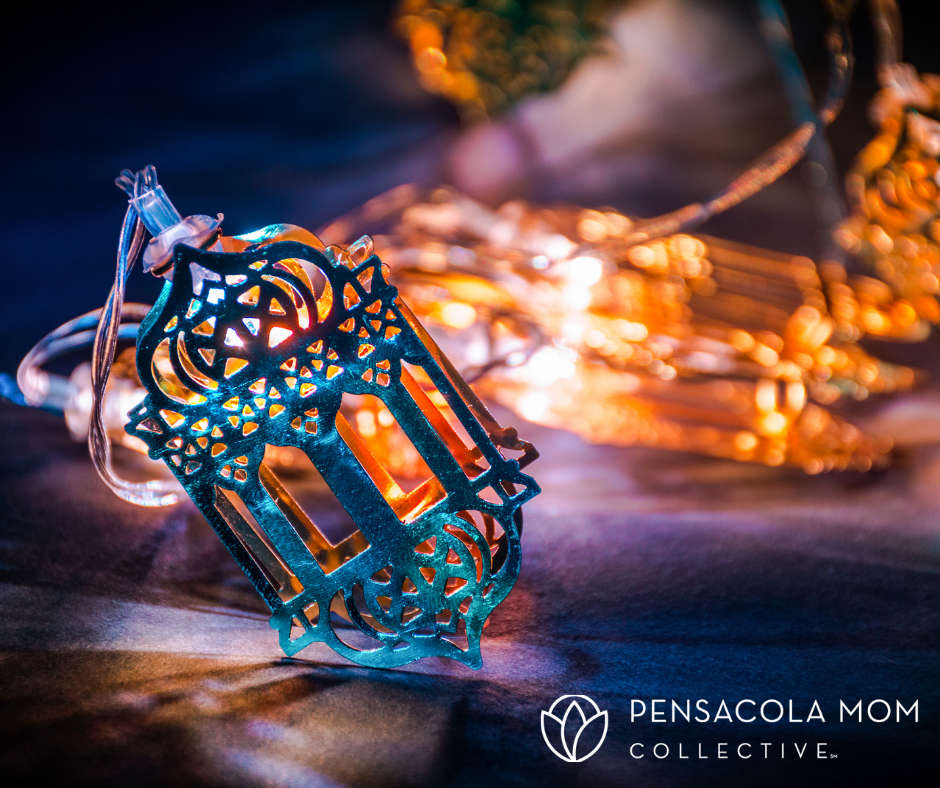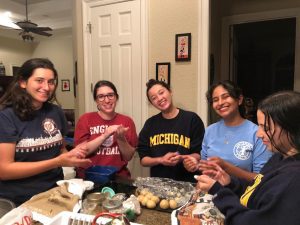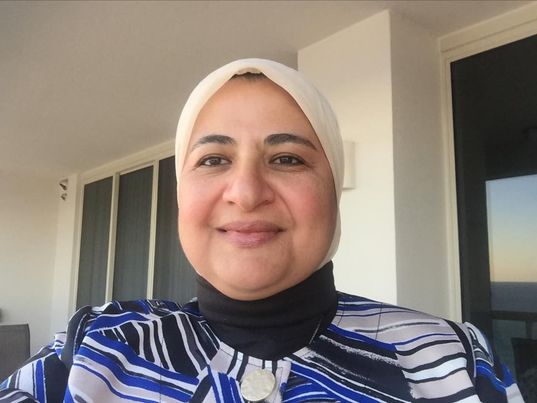
Growing up and celebrating our Holy days, with all their traditions, is the best time of the year in Egypt. It brings the same joy as the Christmas season here in the United States.
However, raising two girls in the U.S. but trying to recreate the same feeling I had during holy days back home was one of the hardest parts of moving away from Egypt.
Trying to explain all the traditions and recreating the community aspect was difficult. My daughters were particularly confused around Christmastime, with the annual questions of “Why don’t we celebrate it?” “Why don’t we have a tree?” and “Why don’t we get gifts?”
However, trying to explain the aspect of fasting during the Holy month of Ramadan was the cherry on top.
Without access to traditional family gatherings and special sweets, I found and made recipes, hosted an annual gathering for close friends on the first day. I tried to create as much joy as I could — away from my childhood home.
The holy month of Ramadan is the ninth month in the Muslim lunar calendar, which is 11 days shorter than the standard Gregorian calendar. Because of this, Ramadan starts 11 days earlier each year. This year, Ramadan will start on April 2nd.
Ramadan is a holy month consisting of fasting, introspection, and prayer.
During this time, Muslims abstain from eating any food, drinking any liquids, smoking cigarettes, and engaging in sexual activity from dawn to sunset.
The struggle is real… ☺
It is celebrated as the month during which prophet Muhammad (peace be upon him) received the initial revelations of the Quran, the holy book of Muslims. It is one of the five pillars of Islam, along with prayer, pilgrimage to Mecca, giving compulsory charity (zakat), and saying a declaration of faith known as the shahada.
Fasting allows Muslims to devote themselves to their faith and come closer to Allah, or God.
It teaches us to practice self-discipline, self-control, sacrifice, and empathy for those who are less fortunate.
Thus, this process encourages actions of generosity and fulfilling the pillar of zakat.
Fasting is not obligatory for several groups, including people with medical conditions, the elderly, and women who are nursing, pregnant, or menstruating. Fasting is mandatory for whoever reaches puberty, and those who miss days of fasting typically have to make them up before the next Ramadan.
“Eid-Al-Fitr” is the first day of the Islamic month of Shawal, marking the end of fasting. It is celebrated with family and friends and is filled with special traditional cookies and gift exchanges.
We exchange Ramadan greetings by saying “Ramadan Kareem” or “Ramadan Mubarak,” which means have a generous or a blessed Ramadan.
Frequently Asked Questions:
1) “So, you don’t eat or drink for 30 days?!”
As mentioned above, from dawn to sunset only.
2) “Must be a great way to lose weight!”
It has never happened, and it never will!
 We have traditional mouthwatering sweets, and we eat large meals early in the morning and late at night. Paired with a long period of low activity, fasting can actually impair your metabolism. Other than when we were quarantined due to the COVID-19 pandemic, it is a time for family gatherings. That means BIG feasts.
We have traditional mouthwatering sweets, and we eat large meals early in the morning and late at night. Paired with a long period of low activity, fasting can actually impair your metabolism. Other than when we were quarantined due to the COVID-19 pandemic, it is a time for family gatherings. That means BIG feasts.
In Pensacola, there are two Islamic centers and a large Muslim community. Usually, we have daily Iftar (the meal at sunset or the break of fasting) and can spend time together after prayer as a community. All are welcome to join us for Iftar (the meal we eat at sunset to break our fast) at the Islamic Center of Northwest Florida (3445 E. Johnson Avenue).
If you would like to try a traditional Middle Eastern dish with your family during this season of Ramadan, click here for a recipe to make Knafeh Nabulseyeh.
Wishing all who celebrate, a “Ramadan Mubarak.”

Guest Contributor: Abeer Abutaleb
Born and raised in Egypt, Abeer moved to the United States and settled in Pensacola in 2008. She worked as a hospital specialist at Baptist Healthcare until January 2021. Abeer is married to Tarek Eldawy, an oncologist at Ascension Sacred Heart Hospital. She has two daughters: Dina (24 years old) graduated from Syracuse University and received her Master’s degree from Oxford (UK); Nada (21 years old) graduated from the University of Michigan in 2021 and is currently working with Americorps in New York City. Abeer is a member of the Islamic Center of Northwest Florida.












